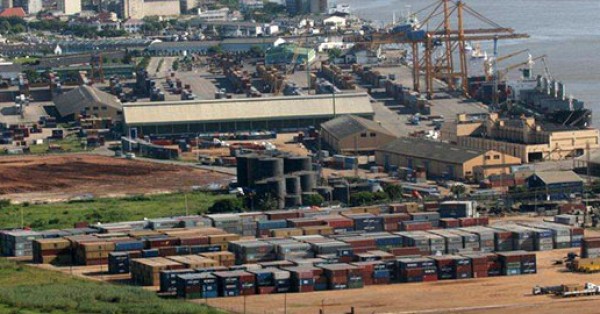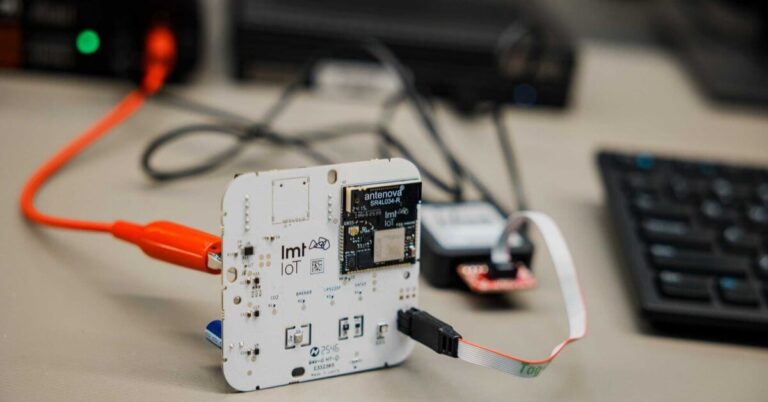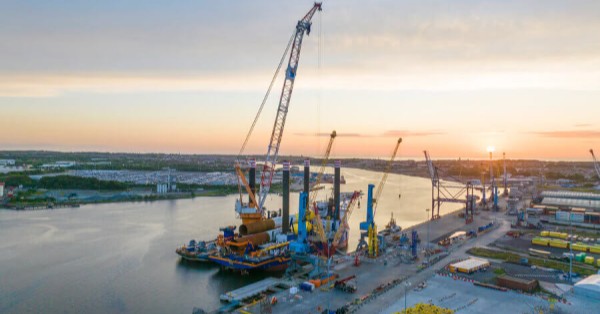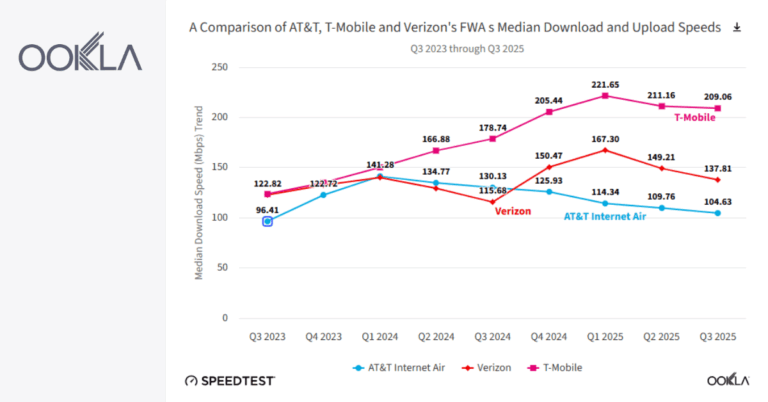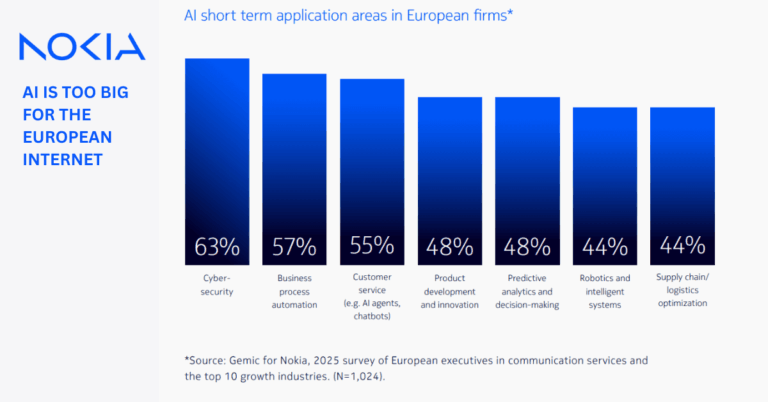Beira Port Adopts Private 5G to Drive Digital Transformation
Sedna Africa, in collaboration with Nokia, has secured a major contract with Cornelder de Moçambique to deploy a Nokia-powered private mobile network at Beira Port. This project is a critical step in modernizing the port’s operations, enabling advanced safety measures, real-time automation, and improved operational efficiency in one of Sub-Saharan Africa’s busiest maritime gateways.
Connectivity Gaps Limiting Beira Port’s Industry 4.0 Adoption
Beira Port serves as a key trade corridor for landlocked countries such as Zimbabwe, Malawi, and Zambia. However, the port still relies on narrowband technologies with limited data throughput. This lack of high-bandwidth, reliable connectivity hampers digital transformation and real-time operational visibility.
Sedna Africa MD Anton Fester explains that this challenge is common across African ports, slowing the adoption of Industry 4.0 technologies, predictive maintenance, and Industrial IoT applications.
Private LTE/5G Network Powers Real-Time Port Operations
The deployment of a 5G-ready private network will provide high-throughput, low-latency connectivity across the port’s operations. The solution will enable:
- Real-time tracking of container and cargo movements.
- Enhanced safety systems through automation and IoT-enabled sensors.
- Digital workflows to streamline operations and reduce downtime.
- Condition monitoring using distributed fibre sensing.
- Integration of Industrial IoT for predictive maintenance and risk monitoring.
Sedna Africa’s offering also includes OT governance and distributed fibre sensing, allowing proactive condition monitoring of critical infrastructure such as cranes and conveyor systems.
Beira Port Traffic Growth Highlights Need for Reliable Connectivity
Beira Port has already shown its potential. In the first seven months of 2024, its container terminal handled 226,000 containers, a 40% increase from 2023. With the Mozambican government investing $290 million to modernize the port and increase annual handling capacity to 700,000 containers, reliable connectivity is essential to support this growth.
Recent trials of advanced fibre optic sensing at other industrial sites have demonstrated early detection of equipment wear and fire risks, significantly improving safety and reducing maintenance costs.
Why Sedna Africa Chose Private LTE/5G for Beira Port
Sedna Africa is deploying a Nokia private wireless network to ensure industrial-grade reliability and scalability. Nokia’s global experience, with over 65 private wireless deployments in mining and heavy industries, provides a proven foundation for mission-critical connectivity at Beira Port.
Sedna Africa selected a private LTE/5G architecture for its ability to deliver dedicated, secure, and high-bandwidth connectivity in mission-critical environments. The solution supports:
- Seamless integration with existing port management systems.
- Scalability to support future automation and edge computing workloads.
- Network slicing capabilities for prioritizing safety and operational traffic.
How Private Networks Boost Safety, Efficiency & Growth
-
Safety: IoT-enabled systems reduce human error and improve hazard detection.
-
Productivity: Digital workflows and automation streamline container handling.
-
Efficiency: High-bandwidth connectivity enables predictive maintenance and minimizes downtime.
-
Economic Growth: Improved infrastructure attracts more trade, creating jobs and increasing revenue.
Setting a New Standard for African Port Automation
The project underscores the growing role of private networks in logistics, transportation, and heavy industries. Beira Port’s upgrade sets a precedent for other African ports seeking to modernize. The integration of Industrial IoT and automation technologies will accelerate Africa’s transition to Industry 4.0, impacting oil and gas, mining, and manufacturing sectors.
Sedna Africa’s Expertise in Industrial Private Networks
Sedna Africa has deployed Africa’s first licensed spectrum private LTE network in mining and the first underground private LTE deployment enabling automation. The company is leveraging this expertise to address connectivity gaps in ports and heavy industries.
Cornelder de Moçambique and Nokia are Driving Port Modernization
Cornelder de Moçambique is aligning infrastructure investments with Sedna Africa’s deployment to create a fully connected terminal. Nokia’s role is to provide the private wireless core and device ecosystem, ensuring secure and scalable connectivity to support current and future automation needs.
Beira Port 5G Deployment Progress & Next Steps
The Beira Port project is on track for phased deployment. Initial stages include network rollout and integration with existing systems, followed by implementation of IoT-enabled safety and automation solutions.
- 2025 Q3: Network deployment and initial integration.
- 2025 Q4: Rollout of IoT-enabled safety and operational systems.
- 2026: Full-scale implementation with predictive maintenance and advanced automation.
Leaders Highlight Benefits of Beira Port’s 5G Upgrade
“Modernizing and focusing on safety and automation are critical to ensuring Beira Port is future-fit,” says Cornelder MD Jan de Vries.
Anton Fester adds, “With Nokia’s technology and our expertise, we are not just connecting assets but enabling what we call an Internet of People — connecting communities through industrial innovation.”



